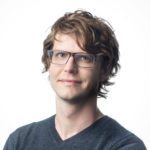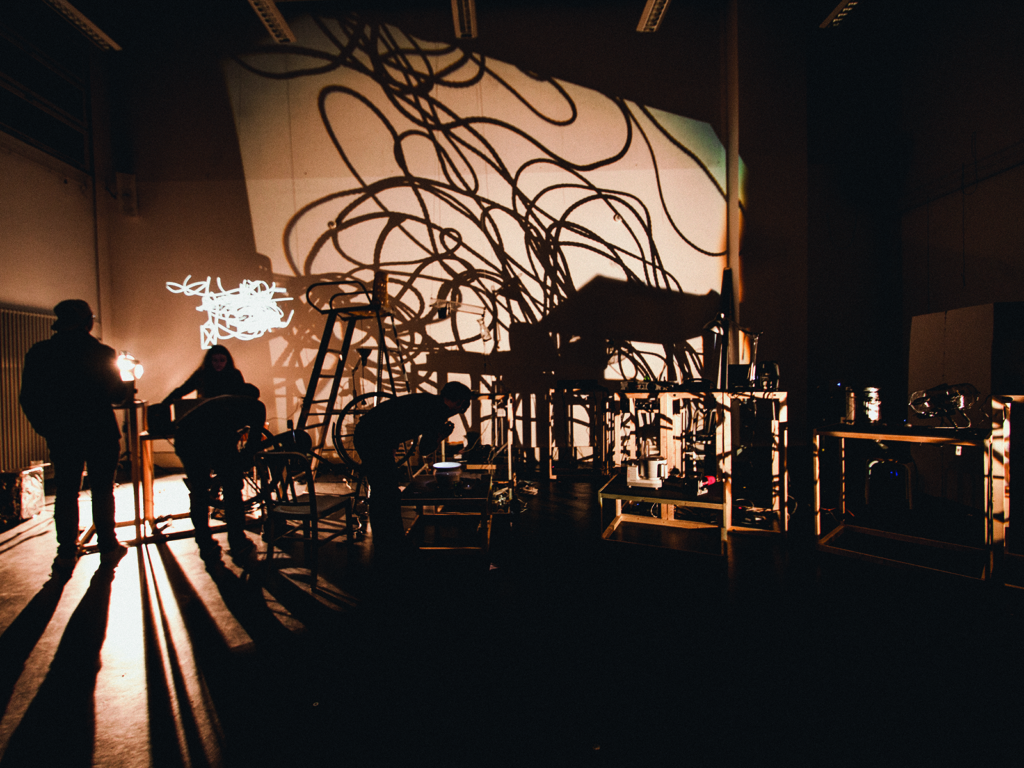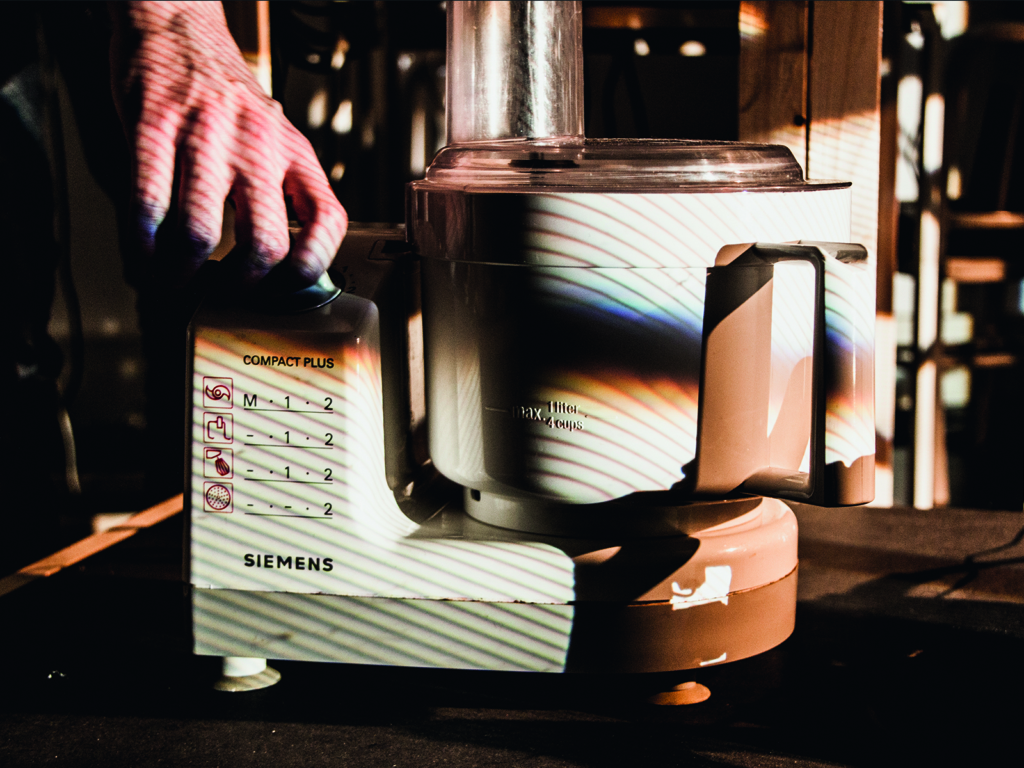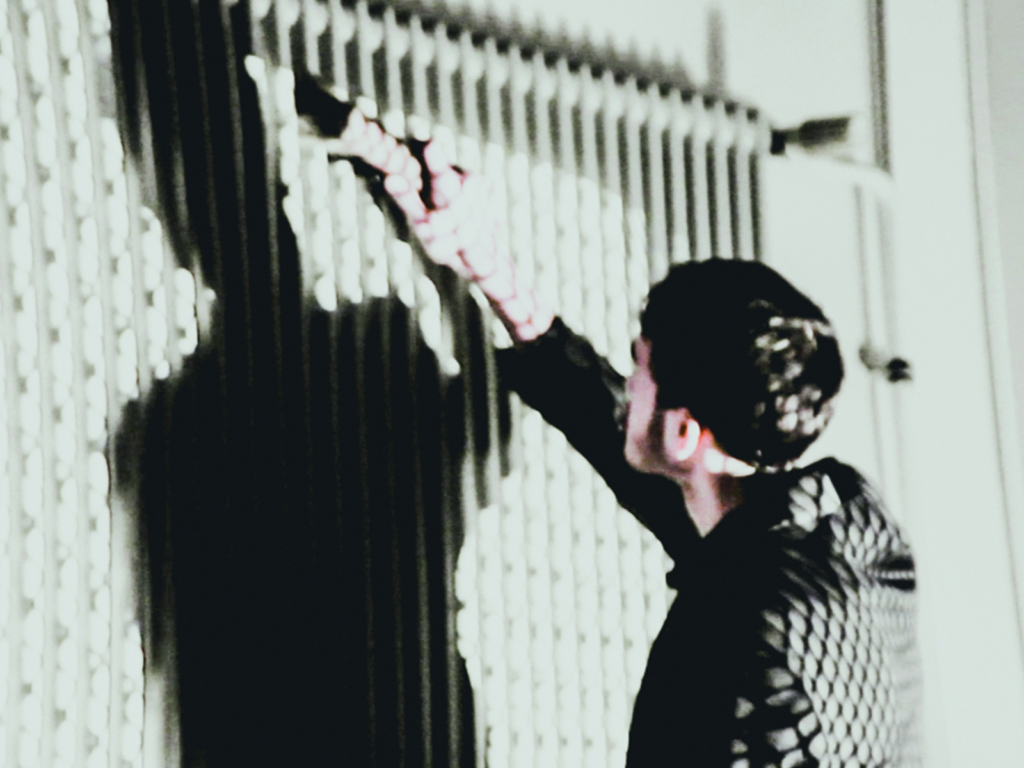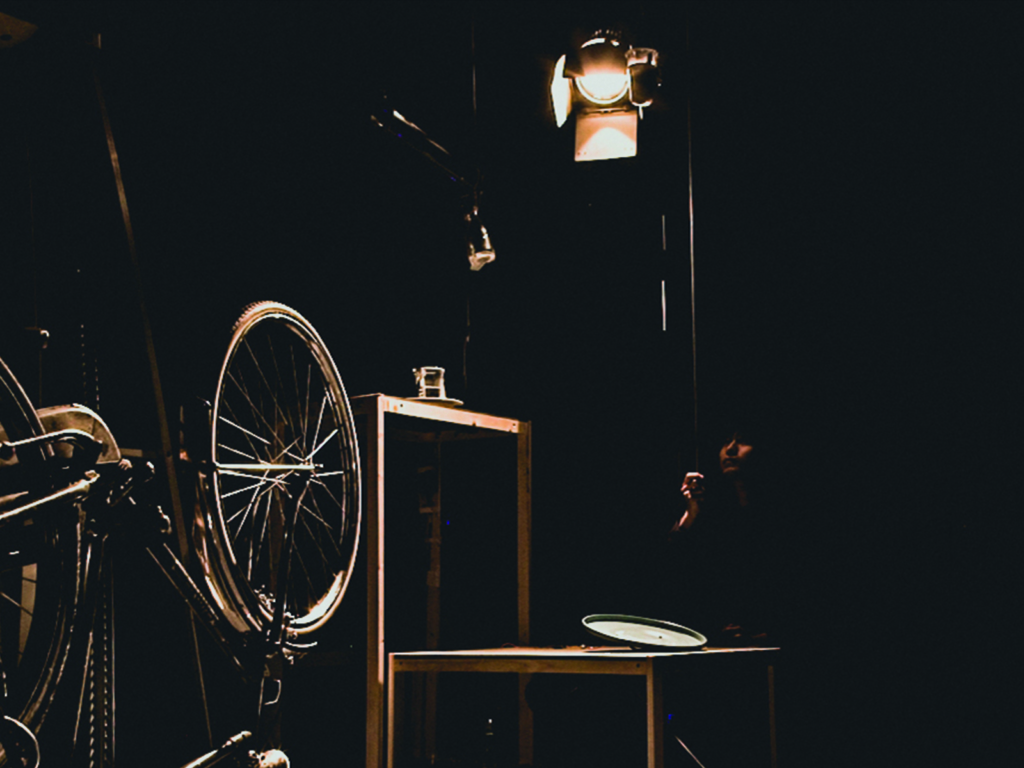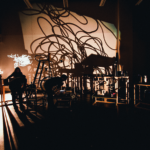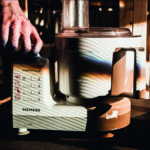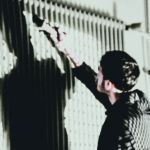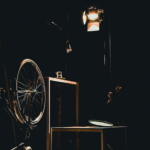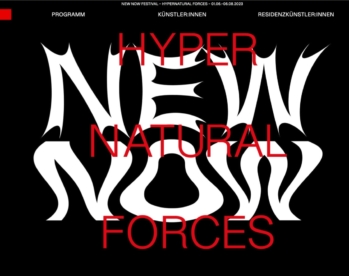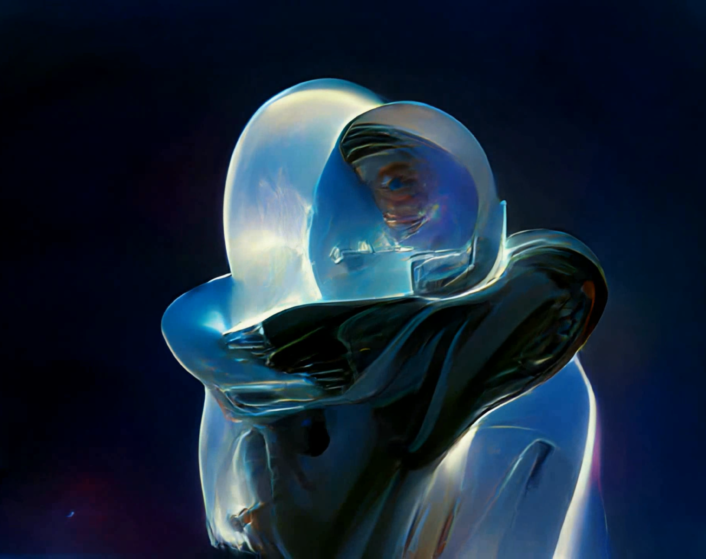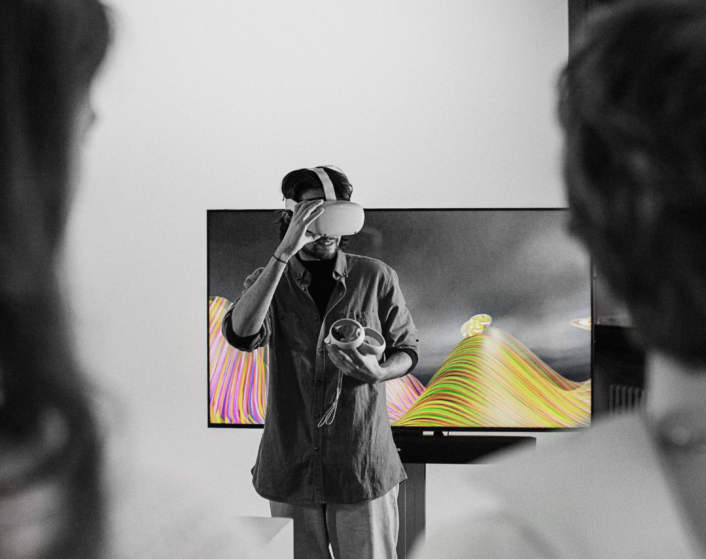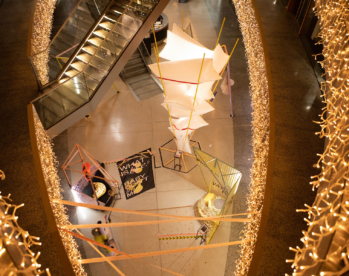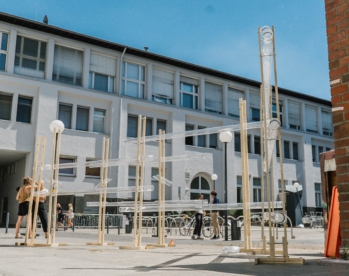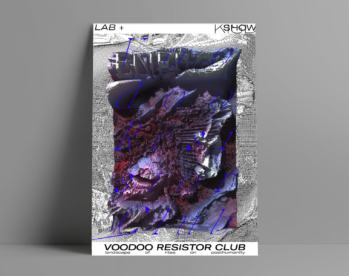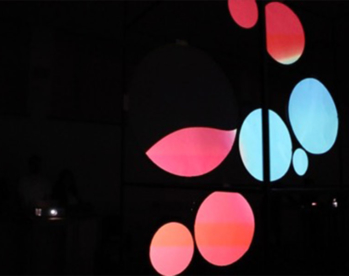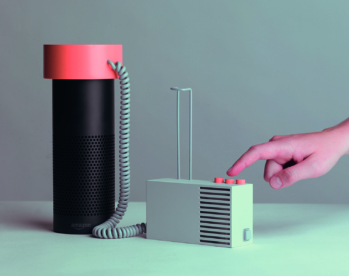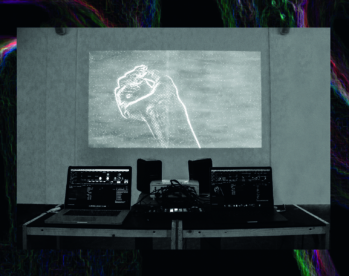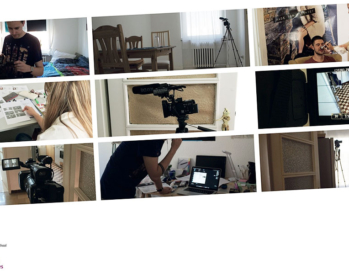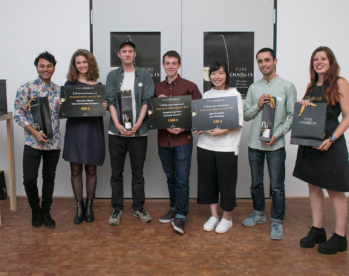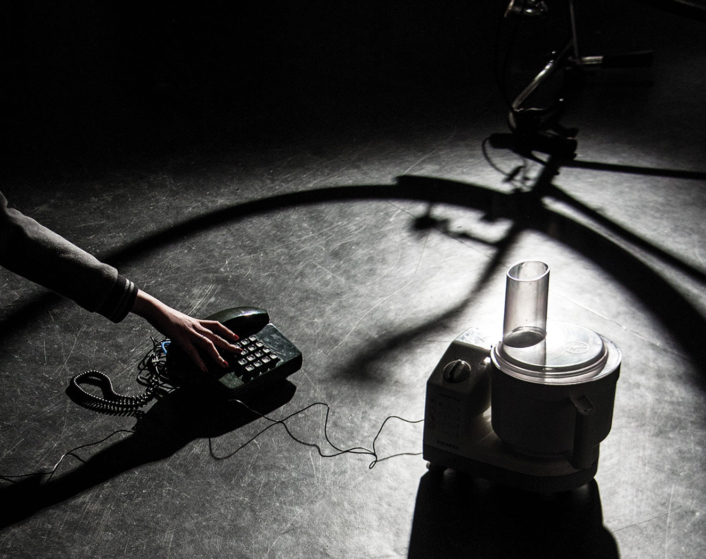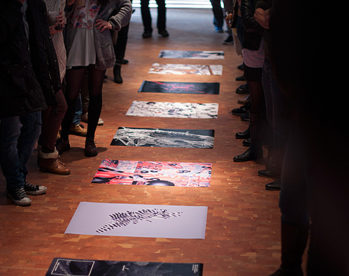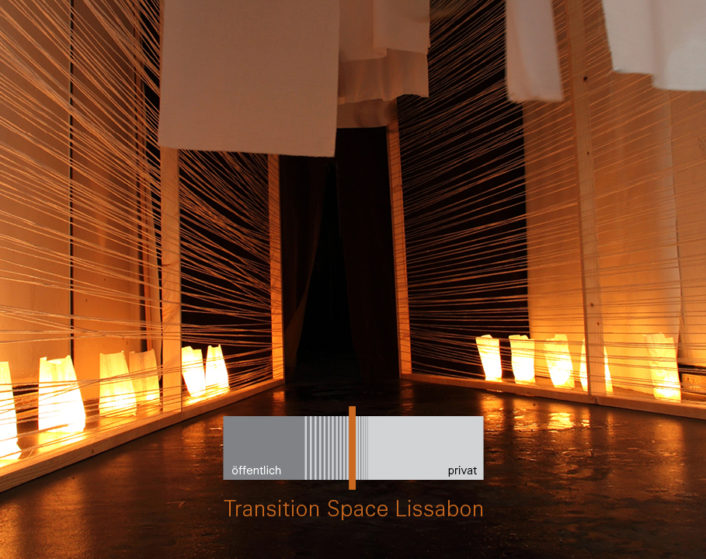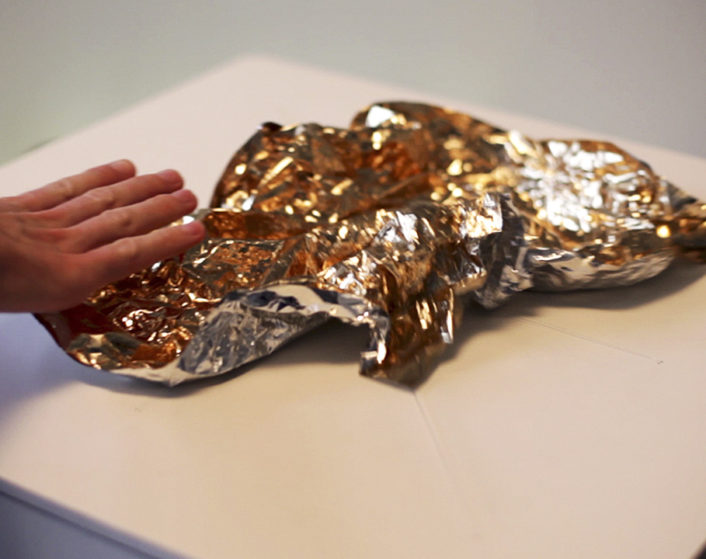What is the “audiovisual character” of a thing? How can we sensually invent, re-interpret, and transform it within the context of a band? In December 2016, students of KISD became “The Hacking Orchestra” and digged deeper into the “principles of misuse” of objects and explored the modes of “instant playing”.
The “Hacking Orchestra” invited students and the public to an audiovisual live set on December 9, 2016, at KISD. And as it should be for a real band – there were blenders mixed, wardrobes kicked, razors effected, referee high seats sensorized, marbles synthesized, water amplified, and TVs destroyed.
“The Hacking Orchestra” is a project set up of a wired sound park of found objects, supervised by Prof. Nina Juric and Prof. Andreas Muxel. Students from diverse semesters hacked everyday objects in unusual ways in order to explore their pitch singularities. They enhanced experiences on improvisation with hardware and software. They designed different inputs and outputs, creating circuits, translations, compositions, and notations. They discovered live dramaturgy and proved the affordance of space. In only ten days, they had to find and act together as dialoguing futurists and bizarre musicians.
“From the beginning, students had to focus not only to play and hack, but also to listen to and find ways to interact with each other. For us setting up a band is a vehicle for enhancing communication. Jamming from the beginning – the instant playing mode – was an essential part to force interaction between the band members,” Prof. Muxel said.
“The whole experience was explorative, challenging, messy, intense, frustrating, but incredibly rewarding. Like a great tension-release song,” concluded KISD student and project participant Manuel Alejandro Juárez. And Dieter Pilger, another KISD student involved in the project, put it the following way: “I really enjoyed the idea and process of taking everyday objects and reusing them in a completely different context. Coming up with possible instruments required quite some imagination as well as a lot of trial and error, which I think was tons of fun. Overall, it was an amazing experience to grow together as a band in such a short time.”Thus, KISD students built instruments to perform, defined a spatial choreography for playing these instruments and finally performed in public for the first time. They discovered not only the sound of noise and rhythm, but also the visual packaging and aspects of distribution for a band.
“The band is not just the music. It sounds easy to jam, but it is quite a big challenge to bring all the elements to a live act in ten days. Creating an impact and an experience for all senses means every detail – like sound, composition, performance, stage, light, objects and its aesthetics – has to be contextualized with each other,” stressed Prof. Juric.
Please find images of the project, the album “noise pattern”, and a movie of the live performance on www.thehackingorchestra.com.
The band already had several gigs at the Frankfurt NODE- Festival and at “Die Lange Nacht der Technik” of TH Köln.

